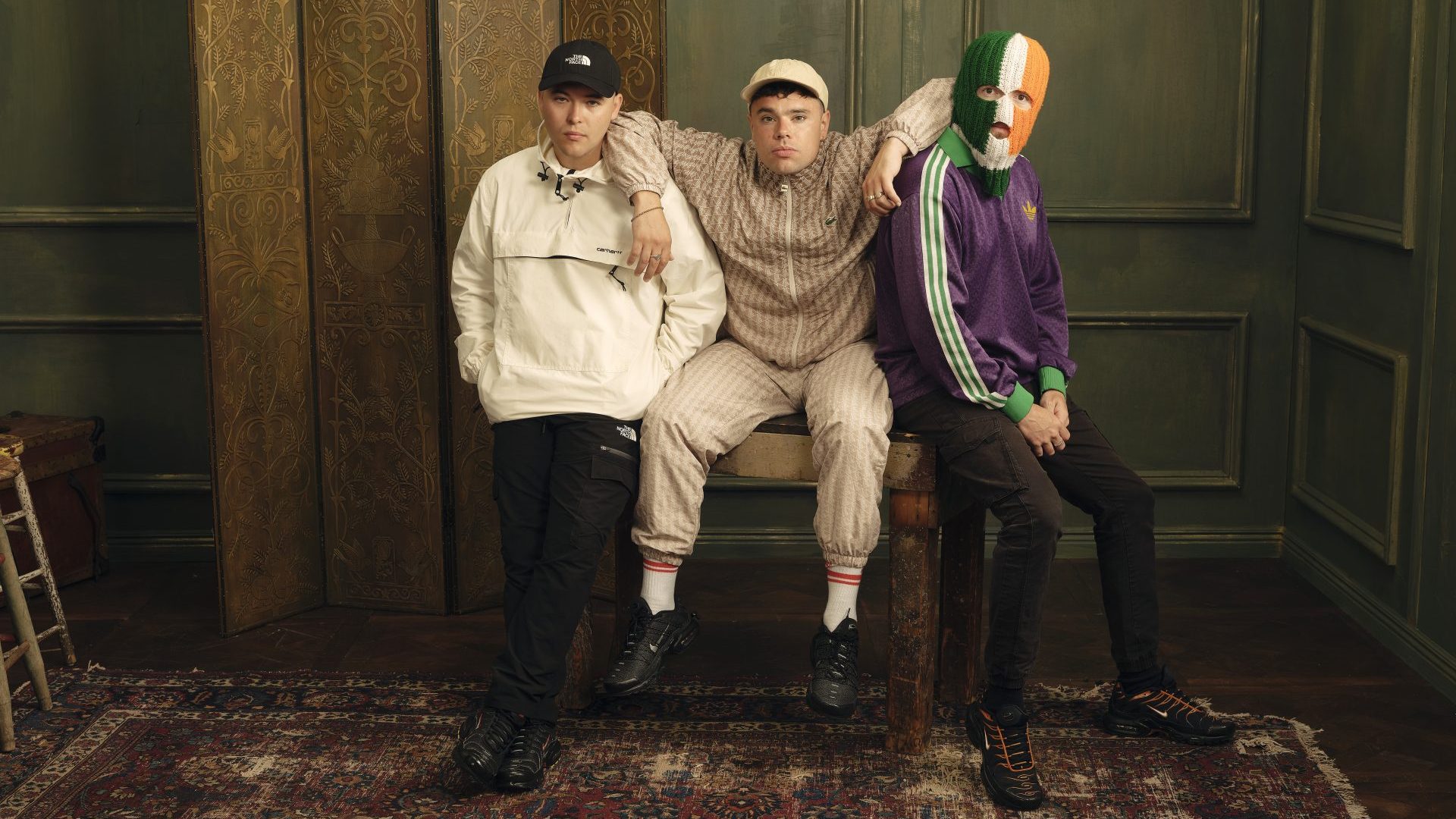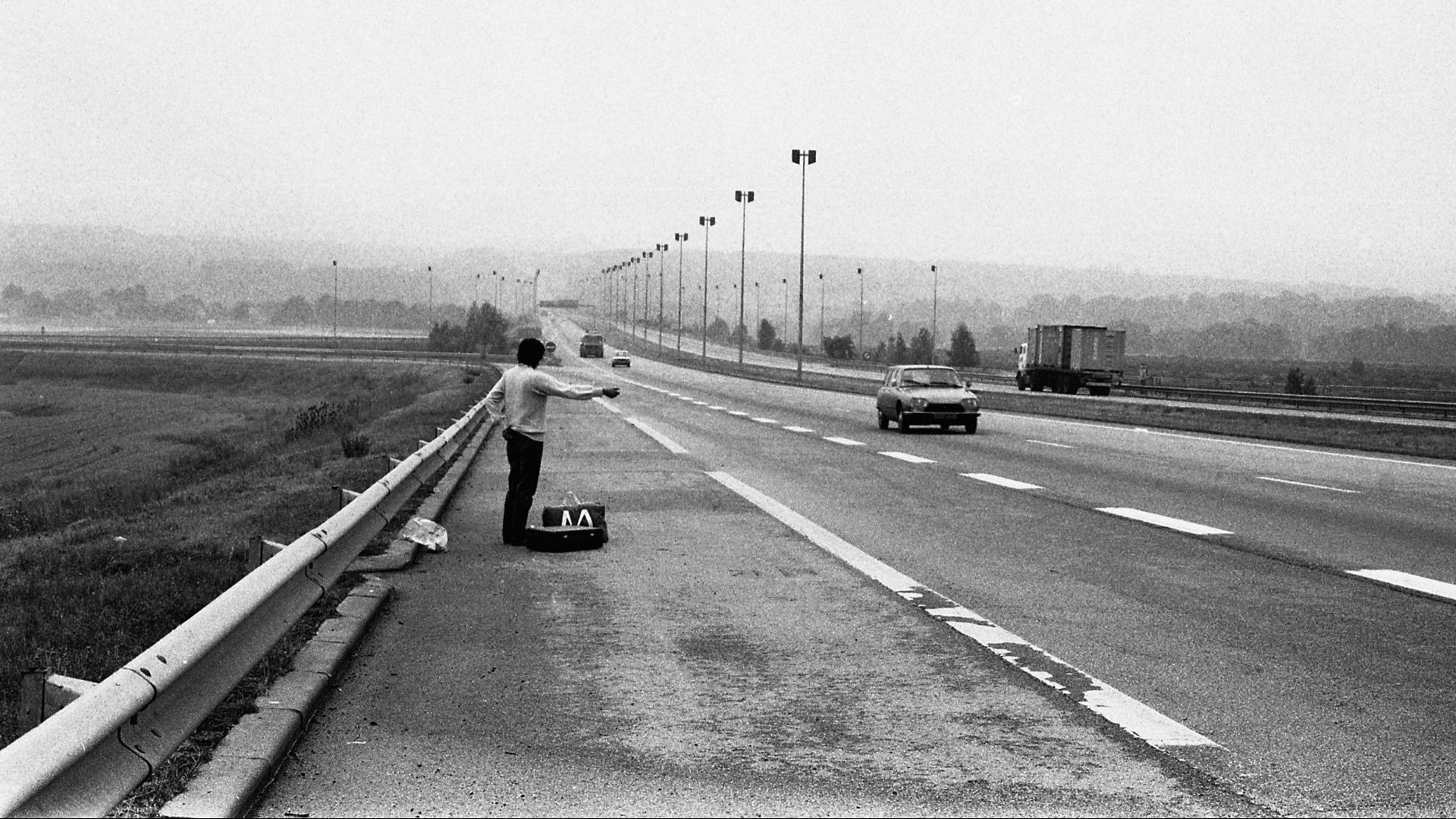Well that didn’t take long, then. It’s barely a year between the history-making Oscar nomination of Irish language drama The Quiet Girl (An Cailín Ciúin) in 2023 and the loud, lairy lads of Kneecap winning a major prize at Sundance in January (the first Irish language film ever to do so) and, right now in the dog days of summer 2024, unleashing themselves on Irish and UK audiences.
Kneecap has just been put forward as Ireland’s official entry for the 2025 Oscars, and I reckon they’ve got a strong chance of at least making the long list. The European Film Academy has already put it on its list for voters’ consideration.
And though you couldn’t find two more different films than The Quiet Girl and Kneecap, they’ve both put Irish-language cinema and the Irish language itself on the global map.
I write this having just shown Kneecap to a rowdy, receptive crowd at one in the morning in my Cinedrome tent at the Green Man festival in Wales, where the film’s impassioned cry for the power and rights of your indigenous language obviously struck a chord. That and its cocktail of jump-up music scenes, witty political rebellion and copious drug use.
The semi-fictionalised story (“It’s about 80% true,” admits its writer and director, Rich Peppiatt) about a real live rap group, called Kneecap, and their beginnings in Irish-speaking west Belfast in 2015 is now on course to smash The Quiet Girl’s record as the highest-grossing Irish-language film of all time.
“The point is,” says Peppiatt, “the film is about the power of language and it’s connecting with people all over the world who cherish their mother tongue. We’ve had audiences from native American speakers, Mexicans, Welsh, Canadians, all coming up to us and thanking us for expressing what they feel about their own language and the language of their grandmother.
“I wouldn’t say ‘oh we can’t believe it’, because that was always the point of the film, but did we realise how globally important that was, to so many people in other countries? Not until now.”
I meet Peppiatt and the three Kneecap lads at the usually decorous, arthouse offices of its UK distributor Curzon (which also released The Quiet Girl). They’ve turned the place into a riot of jokes and laughter, throwing darts at a tabloid newspaper picture of Margaret Thatcher. Later, she’s replaced by Eric Clapton.
Peppiatt, a former Fleet Street tabloid journalist who took that culture to task in his documentary One Rogue Reporter, moved to Belfast for a quieter life with his Irish wife.
Recalling how he got the idea for his film, he tells me: “Two weeks later, I was hanging out with these hardcore Republican rappers and rolling home at eight in the morning with my eyes sticking out of my head.”
Peppiatt went to an early Kneecap gig and was struck by the sheer energy of the performers and the crowd. “I didn’t have a clue what they were saying but I felt the rage, the message and that hip hop was exactly the right culture for this expression. It was obviously special and I just knew there was a movie in it.”
He says his intention was never to make a documentary and that a feature film was always his plan. He took six months to persuade the band, though.
Comprised of Mo Chara, Móglaí Bap and the tricolour balaclava-wearing DJ Próvaí (their real names are: Liam Óg Ó Hannaidh, Naoise Ó Cairealláin and JJ Ó Dochartaigh [O’Doherty]), they insisted on equal billing, that each of their stories and how they came together were given equal prominence.
In the film, Mo and Próvaí meet when the former was being interrogated by police and refused to speak English, requiring an Irish translator, who happened to be 35-year-old music teacher JJ.
The frustrated teacher lights up when he discovers the rapper and his notebook of lyrics, which he sets to beats on an old Roland 808. It’s in these moments that the film really explodes into life, capturing the energy the band themselves are now spreading at festivals with their live shows, from Glastonbury to Leeds and Reading.
Their sweary lyrics are rebel yells, steeped in Belfast politics, anti-police, anti-British, and glorifying drug use, all of which has seen them labelled as “controversial” and “terrorist sympathisers”. They took to the stage in Belfast at the Empire Music Hall the day after a visit from the then Prince and Princess of Wales and began a chant of “Brits out”.
A week later, a Dublin gig was shut down following pro-IRA chanting and the group have been photographed with Gerry Adams. There are now calls from certain quarters that the public (taxpayers’) money that went into funding the movie should be returned.
Kneecap the movie showcases the lyrics, scrawling them across the screen, and has now put a never-seen, rarely heard culture on to cinema screens around the world. Peppiatt claims the film can’t be anti-British. “I’m British,” he says. “But we can’t deny our history of conflict and colonialism, and the fact that these people in Belfast have suffered and the scars run deep in the psyche. Kneecap just want to talk about it – these feelings exist, they’re not making them up.”
Peppiatt, whose filming style here taps into youth subculture movies such as Human Traffic and Trainspotting, says his primary motivation was for the young, working-class men to be taken seriously. “We’re too used to the tracksuit-wearing lads being laughed at, depicted as inept, stupid, criminal. Well, these guys are politically astute, witty, lyrical, smart and proper activists. They’re not a joke and their fight for recognition through language is real and heartfelt.”
Yes, the band are named after the notorious form of punishment that became the hallmark of the Provisional IRA during the troubles. To dismiss the film, then, as a harmless bit of fun would be to seriously underestimate its spirit and intention. It will ruffle feathers – the band have been displaying their support for Palestine on huge screens at their festival gigs – as it progresses through the process of awards and recognition from audiences.
But the film comes with the support of no less a star than Michael Fassbender, the actor who gained fame playing IRA hunger striker Bobby Sands in Steve McQueen’s debut film, Hunger. Fassbender plays a man on the run, in hiding, the father of one of the rappers, a man whose dirty protests of the previous generation might now be outstripped by the fierce delivery of lyrics and music.
The major point being that Kneecap, the band and the movie, are revitalising the Irish language and bringing it into the 21st century, finding proud expression for modern, urban life where for so many years it was a rural concern, a peasant language, one used to shame its speakers.
The Quiet Girl coming out and going to the Oscars while we were shooting was inspirational for us,” says Peppiatt. “We make an odd double-bill of movies, but its success showed us there was an audience for Irish-language film, and it gave our funders a boost of confidence and the growing Irish-language community was suddenly proud and excited having previously been quite careful.”
Adds Peppiatt: “You know, like many indigenous languages, there’s a struggle to stay alive in this homogenous world. Irish is a traditional language with 30 words for a field, you know, but no word for ketamine…
“I’ve sat in pubs and on sofas with these boys and they’re just coining new words that, through their music, are suddenly entering the vernacular within weeks, as people share their music and use it on social media. They are quite literally forging their own identity and a new history with words.”




